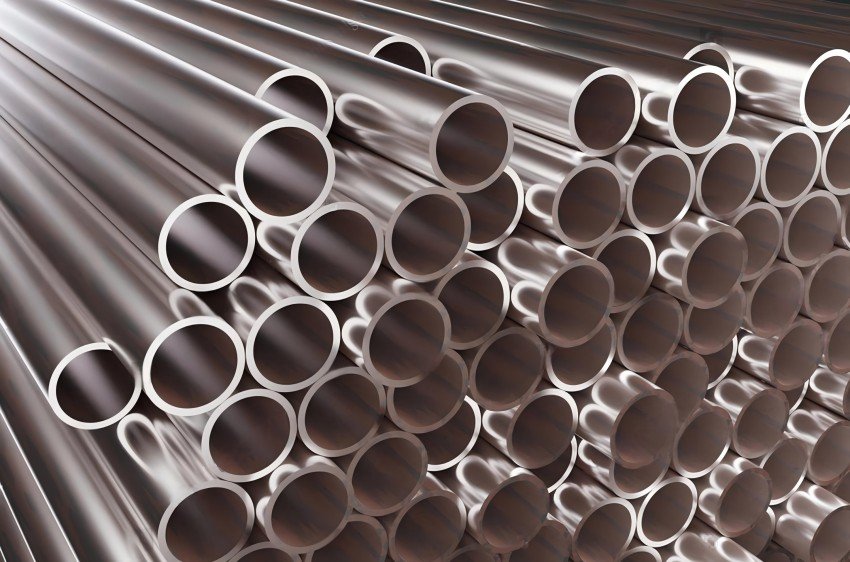In today’s industrial landscape, the demand for efficient and reliable piping solutions is ever-growing. High-Frequency Welded (HFW)
pipes have emerged as a versatile and cost-effective option, catering to various sectors such as oil and gas, construction, and water
supply. This blog post delves into the role and function of HFW pipes, shedding light on their manufacturing process, key benefits, and
wide-ranging applications.
What Are HFW Pipes?
High-Frequency Welded (HFW) pipes are produced through a high-frequency welding process, which involves the use of electrical
resistance to generate heat and fuse the edges of a metal strip together, forming a pipe. This method is highly efficient and suitable
for producing pipes with precise dimensions and excellent mechanical properties.
Manufacturing Process of HFW Pipes
The manufacturing of HFW pipes involves several key steps:
Preparation of the Metal Strip: The process begins with a flat metal strip, usually made of carbon steel or stainless steel, which is
cleaned and prepared for welding.
Forming: The metal strip is then formed into a cylindrical shape using a series of rollers. This step is crucial for ensuring the pipe’s
uniformity and consistency.
High-Frequency Welding: The formed strip passes through a high-frequency induction coil, where electrical currents generate heat
at the edges. The edges are then pressed together, forming a welded seam without the need for filler material.
Heat Treatment: Post-welding, the pipe undergoes heat treatment to relieve any residual stresses and enhance its mechanical properties.
Sizing and Shaping: The welded pipe is sized and shaped to meet the required specifications, ensuring precise dimensions and roundness.
Quality Control: Finally, the pipe undergoes rigorous quality control checks, including non-destructive testing, to ensure its reliability and safety.
Key Benefits of HFW Pipes
Strength and Durability
HFW pipes are known for their high strength and durability. The welding process creates a strong, seamless bond that can withstand high
pressure and stress. This makes HFW pipes ideal for demanding applications such as oil and gas transportation.
Cost-Effectiveness
The high-frequency welding process is highly efficient and cost-effective, producing pipes at a lower cost compared to other welding methods.
This cost advantage, combined with the pipes’ long service life, makes HFW pipes a financially sound choice for many industries.
Versatility
HFW pipes are versatile and can be manufactured in various sizes and thicknesses to meet different requirements. Their adaptability makes
them suitable for a wide range of applications, from small-scale plumbing to large-scale industrial projects.
Applications of HFW Pipes
Oil and Gas Industry
In the oil and gas industry, HFW pipes are widely used for transporting crude oil, natural gas, and refined products. Their strength and
durability make them suitable for both onshore and offshore pipelines, ensuring safe and efficient transport of valuable resources.
Construction
HFW pipes play a crucial role in the construction industry, where they are used for structural purposes, such as in building frameworks,
scaffolding, and support columns. Their ability to withstand high loads and harsh environments makes them a reliable choice for
construction projects.

Water Supply
In the water supply sector, HFW pipes are used for distributing potable water and wastewater. Their corrosion resistance and ability to
handle high pressure make them ideal for municipal water systems and industrial water supply networks.
Importance of Quality Control and Standards
The reliability and safety of HFW pipes are paramount, which is why stringent quality control measures and adherence to industry
standards are essential during their production. Quality control processes include:
Non-Destructive Testing: Methods such as ultrasonic testing and radiography are used to detect any flaws or defects in the welded seam.
Dimensional Checks: Ensuring the pipe meets the specified dimensions and tolerances.
Mechanical Testing: Assessing the pipe’s mechanical properties, such as tensile strength and impact resistance.
Compliance with international standards, such as API 5L for oil and gas pipelines and ASTM standards for construction materials, ensures
that HFW pipes meet the required safety and performance criteria.
HFW pipes are a cornerstone of modern industrial applications, offering unparalleled strength, cost-effectiveness, and versatility. Understanding
their manufacturing process, key benefits, and diverse applications helps in appreciating their vital role in sectors like oil and gas, construction,
and water supply. Quality control and adherence to standards are crucial in ensuring the reliability and safety of these pipes, making them a
trusted solution for a wide range of piping needs.
For more insights on HFW pipes and their applications, subscribe to our newsletter or contact our experts today. Stay informed on the latest
industry practices and innovations to keep your operations running smoothly and efficiently.
#JSFITTINGS #RAYOUNG #STEELPIPE #FLANGE #STEELPIPE #MADEINCHINA #MANUFFACTURER #FACTORY #PIPEELBOW #PIPE REDUCER
#INDUSTRYFLANGE
Email: admin@jsfittings.com
Whats App: 008618003119682



